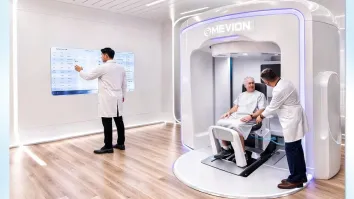
The Alfred begins eye-tracking trial for improved neurological care
The hospital will utilise BrainEye’s 60-second eye movement test in screening neurological abnormalities.
The Alfred Hospital has commenced clinical trials with the smartphone app, BrainEye, to screen neurological abnormalities.
The trial will recruit 500 participants across Australia with different neurological conditions, including Alzheimer’s, Parkinson’s disease, epilepsy, and multiple sclerosis, to assess their brain functions via BrainEye’s 60-second eye movement test, the hospital said in a statement.
The collected data will be compared to neurologically healthy individuals to enhance the app’s recognition and understanding of normal and abnormal brain functions.
ALSO READ: The Alfred's new cancer centre to boost melanoma care
“Early detection with any neurological condition is critical, and while the efficacy of eye movement assessments in picking up abnormalities is well recognised, tests are typically only carried out in clinical settings, and often only when it’s too late," BrainEye’s Chief Scientific Officer, Joanne Fielding, said.
The Alfred Hospital said neurological disorders are the leading cause of disability worldwide and are second to heart disease as a leading cause of death.



















 Advertise
Advertise






